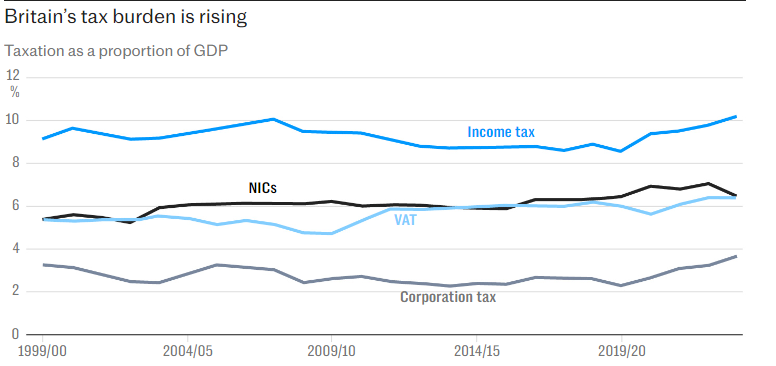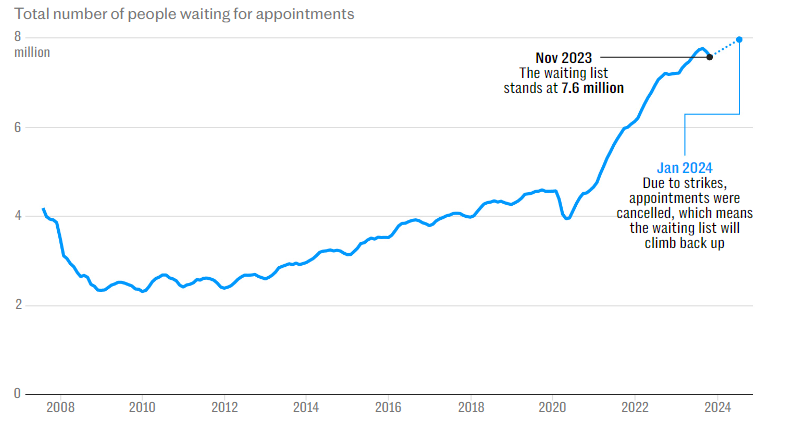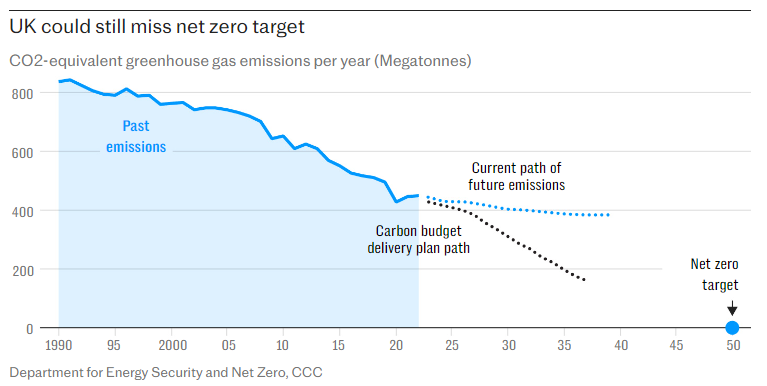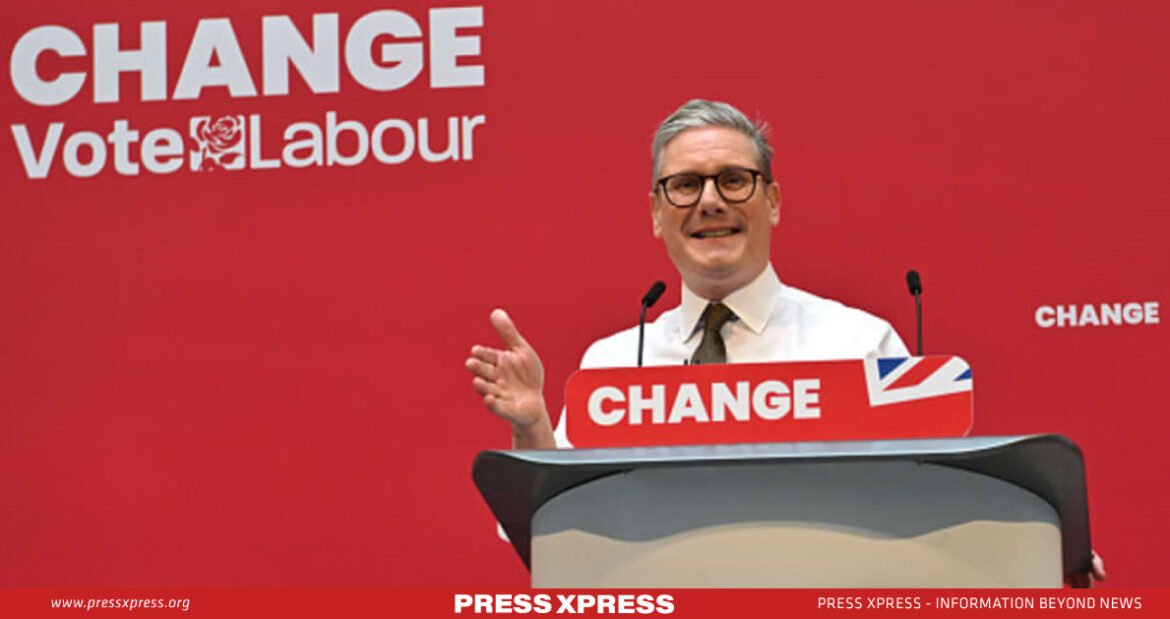Key Highlights:
- Labor aims to raise £8 billion in revenue through various measures.
- Annual fees at top private schools can reach £50,000 for boarders, but the national average is around £15,000
- Proposals include a £7.3 billion national wealth fund to ‘unlock billions of pounds of private investment’
13th June marked another frenetic day on the election campaign trail, beginning with the launch of the manifesto by the Labor party. The party, widely seen as the frontrunner in the upcoming national election, declared its commitment to being ‘pro-business’ and placing a high priority on ‘wealth creation’.
Among its key promises are the establishment of a new publicly owned energy company, a halt to the issuing of new North Sea oil and gas licenses, reductions in patient waiting times within the strained National Health Service (NHS), and the renationalization of most passenger rail services.
Labor leader Keir Starmer, at the manifesto launch in Manchester, emphasized balancing economic growth with social justice, calling it a ‘manifesto for wealth creation’ and a blueprint to transform Britain. He stressed the importance of fiscal responsibility, stating, “You can’t play fast and loose with the public finances.”
In the UK, £3.5 billion is earmarked for public ‘green’ investments like home upgrades and hydrogen, but this is far less than the hundreds of billions invested by President Biden in the US. Economic growth is forecasted in the coming years, but there remains a risk of unforeseen events disrupting progress.
Balanced Budget: £8B In, £5B Out for Key Services
Labor’s manifesto offers a straightforward approach with no hidden tricks or unexpected elements. Their plans involve modest increases in taxation and spending. They aim to raise £8 billion in revenue through various measures.
This money will be allocated towards green investments, additional NHS operations, more mental health professionals, expert teachers, and smaller initiatives such as breakfast clubs in primary schools.
The total expenditure amounts to just under £5 billion. Additionally, Labor has earmarked an extra £4 billion for its green prosperity plan, which includes investments in Great British (GB) Energy. They have exercised caution by leaving £2.5 billion of the anticipated revenue unspent.

Labor Levels the Playing Field with Private School VAT
Labor plans to impose a 20% VAT on private school fees to fund the hiring of 6,500 additional teachers for state schools in England. This proposal worries middle-income parents, who fear it may make private education less affordable. Currently, about 7% of UK children attend fee-paying private schools, with some potentially shifting to state schools due to the tax.
Annual fees at top private schools can reach £50,000 for boarders, but the national average is around £15,000. The Institute of Fiscal Studies estimates this tax could generate up to £1.6 billion annually, although how these funds will be allocated remains uncertain. Moreover, experienced teachers have experienced a 12% decrease in real-term pay since 2010, and decisions on next year’s pay offer for teachers in England are imminent.
Towering Housing Target
Labor’s commitment to constructing 1.5 million new homes in England over the next five years represents an ambitious goal not pursued since the 1960s. However, achieving this target is made more challenging by recent statistics revealing that fewer than 150,000 homes were initiated in the past year.
This figure falls significantly short of the 300,000 completions per year necessary to fulfill the promise. The last time England achieved such a high level of completed homes was in 1969 when new council housing comprised 45% of the total.
Over the past decade, an average of 152,000 homes have been completed annually. Historically, the private sector has only surpassed 170,000 completions twice in a year, both instances occurring in the early 1970s. In contrast, over the last decade, their average annual completion rate stood at 123,000 homes.
Radical NHS Rescue Plan

Labor has committed to revitalizing the NHS, aiming to restore its position at the forefront of healthcare through structural reforms instead of simply escalating funding. Central to Keir’s agenda is a pledge to increase NHS capacity by 40,000 appointments weekly, alongside a goal to meet the NHS target of treating patients within 18 weeks by 2029, marking the end of his first term.
The manifesto also commits to establishing ‘shared waiting lists’ among nearby hospitals, aiming to expedite patient treatment. Additionally, it proposes utilizing ‘spare capacity’ in private hospitals to promptly reduce waiting lists in the immediate future.
Northern Rail, Nationwide 5G Among Infrastructure Goals
The party originally pledged to invest £28 billion annually in the low-carbon economy until 2030 but has significantly reduced this plan following criticism from the Conservatives.
Proposals include a £7.3 billion national wealth fund to ‘unlock billions of pounds of private investment’ for growth and clean energy. The manifesto allocates £1.8 billion for ports, £1.5 billion for new giga factories, £2.5 billion for steel, £1 billion for carbon capture, and £500 million for green hydrogen manufacturing.

Labor also plans to enhance ‘rail connectivity’ in northern England and establish a National Infrastructure and Service Transformation Authority for new projects. They aim to achieve nationwide gigabit internet and 5G mobile networks by 2030.
Palestine Statehood Before Peace Talks
The manifesto vows to recognize a Palestinian state before concluding peace talks, asserting it as the Palestinians’ rightful inalienable right. They pledge tax increases totaling £8.3 billion and formal recognition of a Palestinian state.
It also stipulates that a ‘neighboring country’, likely Israel, should not possess veto power over Palestinian statehood. However, Labor affirms commitment to a ‘two-state solution’ and Israel’s right to exist.
Additionally, Labor plans a 100-day review of Britain’s security threats upon assuming office.
As the campaign enters its final stretch, Labor’s sweeping manifesto lays out an ambitious vision to remake Britain’s economy. By staking out a self-described pro-business middle ground that balances growth with social justice priorities like the NHS, education, and green investments, Keir Starmer aims to build a governing platform palatable to a broad swath of voters. With economic headwinds on the horizon, Britain’s electorate now has a boldly reformist agenda to weigh against the Conservatives’ change-wary pitch for continuity.


